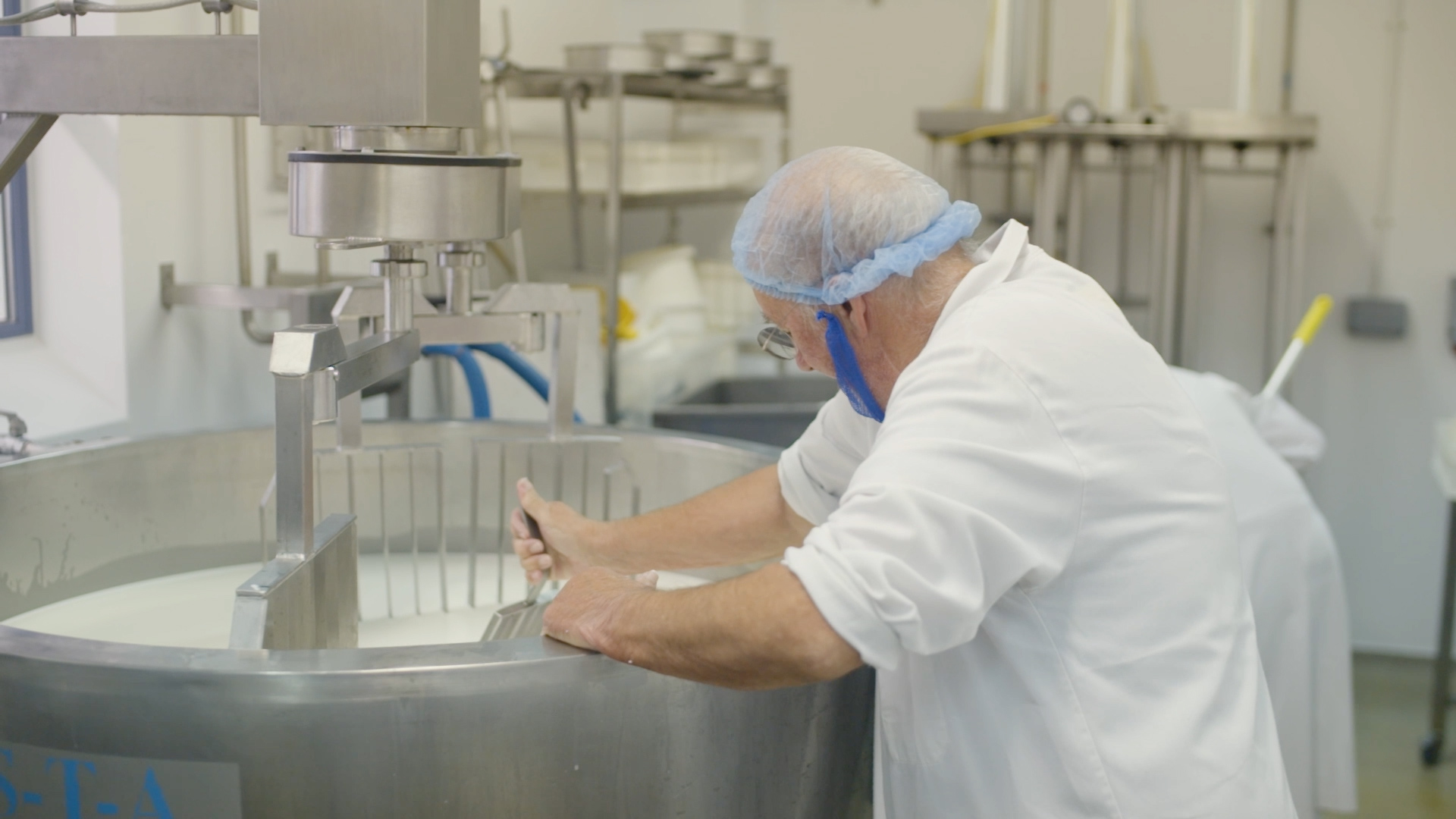Business
Language skills’ decline threatens tourism

A REPORT released by leading travel trade association UKinbound, has uncovered a growing language skills gap facing the UK tourism industry, caused by a combination of Brexit and the decline of language training in the UK.
The new research undertaken by Canterbury Christ Church University highlights the current lack of capacity in the UK’s education system to meet the shortfall in higher level language skills which are badly needed by the UK’s inbound tourism industry.
To date, tourism organisations have been largely reliant on EU nationals for their technical and ‘soft’ language skills and concerns are rising in the industry about the attrition of these employees. Approximately 130,000 EU nationals departed the UK in the year to September 2017– the highest number since 2008.
Furthermore, a sharp decline in the number of young people studying a foreign language, arising in part from changes to government policy since 2002, combined with a lack of awareness of the opportunities and career paths open to language proficient graduates in the tourism and hospitality sector, are major contributors to the widening language skills gap in the sector, at a time when access to future EU employees is uncertain.
Key findings of the research:
Of the 78 institutions offering tourism and/or hospitality undergraduate programmes in the UK, only 25 offer languages as part of their tourism/hospitality curriculum.
45 institutions offer 87 postgraduate tourism/hospitality programmes – yet only 6% of these programmes offer a language, as an optional module.
The audit identifies Institution Wide Language Provision and study abroad opportunities as alternative ways for students to add an international dimension to their studies
From a sample of 43 higher education institutions that offer a single honours modern language degree programme, only 16 mention tourism as a career prospect.
Interviews with modern language programme directors highlighted a lack of knowledge of the tourism sector and tourism specific career pathways.
The report also features an Evidence Review, drawing on data from previously conducted research and reports, creating a clearer picture regarding the diminishing supply of home-grown linguists
Pupils taking languages at A-level fell by a 1/3 in 20 years (1996-2016)
French declined from 22.7k to 8.5k
German from 9.3k to 3.4k
Spanish increased from 4.1k to 7.5k.
German is no longer a dominant language taken at A-level. French and Spanish continue to be key languages, despite the declining popularity of French.
There has been an uptake in the study of key UK inbound growth market languages; Mandarin and Arabic, but the growth of the talent pool here is slow and limited.
Social, regional and gender inequalities in the uptake of languages are striking.
The number of UK universities offering language degrees has dropped by 30% between 2000 and 2015.
Deirdre Wells OBE, chief executive officer, UKinbound said, “The UK is currently the fifth most visited country in the world and our inbound tourism industry in 2017 contributed an estimated £25 billion to the UK economy. Those working in tourism need to be able to communicate effectively with their international visitors and our tour operators in particular need employees who can communicate confidently and negotiate contracts with overseas operators and suppliers. The industry currently employs large numbers of workers from the European Union to fulfil these roles, but our members are reporting that many of their EU employees are starting to return home. They are struggling to find replacements from within the British workforce, predominantly due to their lack of advanced language skills.
“This report clearly shows that the country needs leadership from the very highest levels to address this impending language crisis, to ensure the tourism industry continues to provide world class customer service and remains competitive in the global marketplace.”
Dr Karen Thomas, Director of the Tourism and Events Research Hub, at Canterbury Christ Church University added: “The uncertainty of the Brexit negotiations appears to have pushed the tourism and hospitality sectors to a critical point, where they not only have to consider the valuable role of EU workers, but also need to evaluate the potential of home-grown talent to meet the needs of the future inbound tourism industry. This research is particularly timely given the body of evidence which has been developing about the decline of home-grown linguists and the potential this has to impact on UK productivity and competitiveness in a post-Brexit landscape. For the UK inbound tourism industry, where language skills and intercultural understanding are crucial in business and consumer-facing roles, the findings of this study raise challenging issues to be addressed by a wide range of stakeholders.”
UKinbound also recently surveyed its members regarding their need for graduates with language skills. Just 34% of members had employed graduates with language skills in the last five years, but 65% of members are now considering employing graduates with language skills in the next five years.
The report findings coincide with the launch of UKinbound’s campaign to highlight the contribution of tourism from EU countries to the UK economy, and to impress on the Government the urgency of securing either no, or minimal, barriers to inbound tourism from the EU post Brexit.
Wells added, “In 2017, two-thirds of inbound visitors came from the EU and contributed an estimated £10 billion to the UK economy. We are calling on the Government therefore to prioritise the need for minimal disruption to this flow of visitors in the Brexit negotiations. Any onerous entry requirements post Brexit will hurt the sector, the economy and cost jobs and any delay risks undermining the sectors ability to prepare for the post Brexit environment.”
The tourism industry is the UK’s third largest employer, employing 3.1 million people (over 9.6% of the UK workforce) and contributes £126 billion to the UK economy, (7.1% of GDP). The UK receives 67% of its tourists from the EU.
Business
Paramount’s key role in transformation of McArthurGlen Designer Outlet

FAST-growing Welsh company Paramount is relishing the challenge of creating an “irresistible dining destination” after winning the contract to play a key role in the multi-million transformation of the McArthurGlen Designer Outlet Bridgend.
The Cardiff-based design, build, fit-out and refurbishment specialist will spearhead the re-development project of the shopping centre after being handed responsibility for revamping its popular food court over the summer.
In the coming months, the development will see the Food Court transformed into three modern, and bright restaurants, welcoming new food and beverage brands to the centre and creating more than 100 new job opportunities for the local community.
Paramount’s Construction Director, Paul Thomas, said: “The team behind the scenes at McArthurGlen Designer Outlet Bridgend have fantastic plans for the future and we’re delighted to have been entrusted with the mission to help turn their exciting vision into a reality.
“Paramount prides itself on creating places where people want to be, and my team are relishing the opportunity to help create what will be an irresistible dining destination. It’s certain to be a complex project, but we have the expertise and local knowledge to deliver outstanding results in close collaboration with our project partners.”

The owners of the shopping centre, which has been attracting local people and visitors for more than 25 years, have promised a “substantial investment to redevelop the Food Court area and replace it with new and exciting restaurants”.
Now the Paramount team is ready to lay the groundwork by removing some existing structures around the Food Court and will then introduce a series of new features as part of the overall facelift. These include new glazed entrance doors within glazed curtain walling shopfront, render and a new entrance lobby with new stairs and lifts.
The work to completely develop the Food Court in the shopping centre starts this week, and is expected to be completed in late autumn. As a result, customer favourites including Nando’s, McDonald’s and Chopsticks will be closed while work is under way.
Patrick Finney, Head of European Construction, McArthurGlen Group, said: “After celebrating our 25th anniversary last year, we’re extremely pleased to welcome Paramount on board in this important step of revitalising the Food Court area.
“These are exciting times for everyone at one of South Wales’ best-loved retail complexes and we know Paramount will work closely with us to create a truly special place for diners and shoppers of all ages.”
Paramount, whose turnover reached £45 million in 2023, employs 60 people who own a majority shareholding of the business – 51 per cent – following completion of an Employee Ownership Trust (EOT) scheme in 2021, a deal which marked a major milestone for Paramount after a period of sustained growth.
The company is well known across Wales and England where it has created high-quality inspirational space for a number of leading companies. These include the multi-million-pound redevelopment of Hodge House and Fusion Point One in central Cardiff, and the fit out of Par 59 bars in South Wales and South West.
Over the next few months, Paramount’s construction team will also be completing on a multi-million-pound social housing development in Porthcawl, Mid-Glamorgan with Valleys to Coast.
Business
Welsh Secretary commends growth of medical device company IQ Endoscopes

THE Secretary of State for Wales, David TC Davies, has commended IQ Endoscopes for the clear progress it is making on its ambitious growth journey and the value it is bringing to the local economy.
The Cabinet Minister turned the spotlight on the impact of private equity investment and venture capital following a fact-finding mission to the medical device manufacturer’s Chepstow HQ in South Wales.
The visit was organised by the British Private Equity and Venture Capital Association (BVCA), whose members, BGF – one of the largest and most experienced investors in the UK and Ireland – and the Development Bank of Wales, alongside a consortium of existing investors, boosted IQ Endoscopes’ expansion with a £5.2 million investment in 2022.
Mr Davies, the MP for Monmouth, commented: “IQ Endoscopes is an outstanding example of how a business can excel with the right support and investment, which has allowed the team to innovate, grow, create jobs and bring value to the community.
“IQ Endoscopes is a fantastic company on the brink of an extraordinary achievement as they push the boundaries of medical technology, but these pioneers could not have turned their bold vision into reality without the backing of BGF and Development Bank of Wales.”
Tim Rea, head of early stage investments at BGF, said: “IQ Endoscopes has been able to generate a great deal of momentum to date as the team navigates its way towards launching a truly innovative technology which will help ease the strain on our healthcare system and improve patient outcomes worldwide.
“We’re proud to support IQ Endoscopes, providing strategic guidance and funding at a crucial stage of the company’s journey.”
IQ Endoscopes has created a single-use endoscopy device which is not only cost-effective and scalable but also sustainable and has the potential to revolutionise early diagnosis of a range of cancers and gastro-intestinal conditions.
Matt Ginn, IQ Endoscopes Chief Executive Officer, said: “IQ Endoscopes has undergone rapid acceleration. Funds from our 2022 investment have enabled my team to focus on market access strategy ahead of product launch.
“We’re now pushing forward at speed to develop a device which will soon transform the way patients undergo vital treatments and procedures, as well as boosting the economy with up to 100 new jobs.
“To support this growth, we’re looking to raise further investment in the near future and as such, we’re keen to explore interest from further UK venture sources.”
Michael Moore, British Private Equity and Capital Venture Association Chief Executive, added: “We were delighted to arrange for the Welsh Secretary to visit IQ Endoscopes and demonstrate the real impact that private capital has in small and innovative businesses up and down the country.
“In 2022, 27.5bn was invested by private capital into UK businesses in sectors across the UK economy, ranging from consumer products to emerging technology. There are over 12,000 UK companies backed by private capital which currently employ over 2.2 million people in the UK. A majority of the businesses backed are outside London and 90% of the businesses receiving investment are small and medium-sized businesses.”
Dr Richard Thompson, Senior Investment Executive at the Development Bank of Wales, said: “We’ve worked closely with IQ Endoscopes since our initial investment in 2020 attracted them to Wales. Having secured regulatory approval in the UK and US, they’re making significant progress.
“The company is one of many that is helping to position Wales at the forefront of the health-tech sector and we’re proud to be playing a part in their global success story. We’re looking forward to the difference their technology can make to help patients and to reduce the NHS waiting times for endoscopy services.”
Business
Welsh food and drink businesses leading the way with employee satisfaction

A RECENT survey has revealed that Welsh medium sized businesses in the food and drink sector are performing above national and global averages in terms of employee satisfaction.
The Welsh Government’s Food & Drink Insight Programme, in partnership with Sgiliau Bwyd a Diod Cymru / Food & Drink Skills Wales, commissioned and carried out the survey which delved into various areas of the workplace including job satisfaction, wellbeing, organisational culture, management feedback, facilities, training and employee engagement.
The survey’s findings were notably positive, including Welsh businesses achieving an engagement score of 73%, surpassing the industry average of 71%. For the purpose of the research, engagement is defined as the involvement and enthusiasm of employees in their work, with engaged and happy employees being more productive and profitable.
Additionally, a significant 81% of respondents agreed that living in Wales enhances their quality of life and work-life balance, with the ease of accessing nature outside of work hours scoring highly as one the factors for this.
For the newly-appointed Welsh Government Cabinet Secretary for Climate Change and Rural Affairs, Huw Irranca-Davies MS, the survey’s findings are very encouraging and shows that Wales is an attractive location for food and drink businesses.
He said, “We are thrilled with the results of this survey, which show that Welsh food and drink businesses are leading the way in terms of employee satisfaction.
“The Welsh Government is committed to initiatives that bolster the food and drink sector and contribute to employee wellbeing. The insights from this survey are instrumental in fostering continuous improvement areas and skills development.”
The Food & Drink Skills Wales project has been a key partner in the work, with the project planning, and the intention to use the findings to help improve skills development within the food industry.
Nerys Davies from Sgiliau Bwyd a Diod Cymru / Food & Drink Skills Wales said, “We are thrilled with the results of the survey, which shows that Welsh food and drink businesses are leading the way in terms of employee satisfaction.
“However, while the results are extremely positive it also serves as an invaluable tool in helping us identify key areas for improvement and gaps in skills provision. The Food & Drink Skills Wales programme looks forward to working with businesses and partners to support the industry become an even better place to work.”
Explaining why they took part in the survey, Osian Deiniol of Llanrwst-based Blas ar Fwyd said, “We were keen to take part in this survey, as we believe that employee satisfaction plays an important role in the success of a business.
“It’s great to see the industry in Wales is on the right track, but just as important is the fact that the survey also provides us with valuable insights into how we can continue to improve and develop as a good employer. We look forward to working with Food & Drink Skills Wales on these areas over the coming months.”
Meanwhile, reflecting on the findings Doreen Donovan from WorkL, who conducted the survey said, “Our interviews with the businesses showed that people who choose a career in Welsh food and drink are, on the whole, very satisfied with their work, with the scores exceeding global averages.
“The engagement score was particularly positive, which is very good news for businesses as research consistently shows that companies with employees who are more engaged are typically more successful and profitable.”
For more information about the Sgiliau Bwyd a Diod Cymru / Food & Drink Skills Wales project, visit https://menterabusnes.cymru/food-and-drink-skills-wales/
-

 News7 days ago
News7 days agoPolice issue update on the search for Luke, missing from Pembroke Dock
-

 News2 days ago
News2 days agoPolice and air ambulances at ‘serious incident’ at West Wales school
-

 News6 days ago
News6 days ago20mph U-turn: Some roads will return to 30mph following public outcry
-

 Community6 days ago
Community6 days agoMiracle pup finds her forever home after heart-wrenching journey
-

 Crime2 days ago
Crime2 days agoPembrokeshire pensioner accused of 17 sexual offences against children
-

 Crime1 day ago
Crime1 day agoAll three school stabbing victims discharged from hospital, police confirm
-

 Community3 days ago
Community3 days agoCounty Hall to offer space for community banking
-

 Crime4 days ago
Crime4 days agoBrian Davis: Wanted on suspicion of commercial burglary




































